✨It's Never Too Late to Live Your Writing Dreams and Other Wise Words from Charles B. Fancher, Laurie Petrou & Kate Fodor✨
Plus, it's 📕Books with Hooks🪝week over on the podcast; and the Great Beta Reader Match-Up continues!
Happy Friday, writing friends!
The vast majority of people out there writing (and even publishing!) books are not full-time writers. The reality is, people need to be able to afford food, shelter, clothing (no shade intended, naturalists. You do you) and a whole host of other necessities that lead us to prioritize getting paid over pursuing our dreams. If you’re one of the many who woke up one day realizing you’d sacrificed what you love on the alter of what you need, but are now worried that realization came too late, today’s issue is for you. ❤️
First up we’ve got a Q&A with debut novelist Charles B. Fancher, a professional business communicator for nearly four decades who didn’t pick up his pen for more literary pursuits until after he’d retired! Inspired by a previously unheard story his then 92-year-old mother told him about her grandfather, Red Clay (out now!) is the story of an enslaved Black family and their white owners as the Civil War ends and Reconstruction begins. We especially love his take on Mark Twain’s "Write what you know" advice: “…what you "know" continues to expand as you grow older and have more experiences. Each new person you meet, each new place you visit, each conversation you have, and each new book you read, movie you see, or song you hear adds depth to your well of knowledge. And, if you're a smart writer you'll access it for fresh insights to tell stories from a new perspective with a voice that is uniquely yours.” Read the full Q&A for more of his wise insights and inspiration! 🦉🤓
This theme continues in this week’s second Q&A with Laurie Petrou and Kate Fodor, co-authors of the Kirkus-starred YA novel The Rehearsal Club (out now!). If you think you’ve started late and don’t have whatever it is you think others have to make it, Kate wants you to know that “writers are scavengers, collecting life experiences and observations of the world like peat and wood to fire their work, and if you’re middle aged or older, you have a GREAT BIG SACK. Maybe a short or nonexistent writing resume, but a big sack! That’s an asset. Flaunt it. Don’t be intimidated.” (Editor’s note: Was considering getting this tattooed on some as-yet-to-be-inked body part, but then thought about what those even more immature than I would have to say about me flaunting my great big sack for the rest of my life and thought better of it…). 😝
Meanwhile, over on the podcast…It’s 📕Books with Hooks🪝time again! On this week’s episode, Bianca, Carly and Cece dig into a memoir submission as well as one for a speculative thriller, discussing (among other things) the delicate dance between withholding and revealing information in storytelling, and the necessity of grounding characters in their actions and motivations. (Don’t forget you can now watch on YouTube as well as listen on whatever your favourite podcast platform is!) 👓👂🏼
Last, but never least, the Great Beta Reader Match-Up (now even more Great with the addition of Romantasy as a genre!) is on and you’ve got three more weeks to sign up! 🐉🧚🏼♂️💘
That’s all for now. Thanks for reading! ❤️
The Shit No One Tells You About Writing Team
P.S. Still not sure about upgrading to paid? Check out our Tuesday Teaser below to see what you’re missing!
This Week’s Podcast✨🎙️✨
On this week’s edition of📕Books with Hooks🪝 (listen to it here or watch it on YouTube!) Bianca, Carly and Cece discuss a memoir submission as well as a speculative thriller submission.
They highlight the importance of balancing plot points with emotional depth; the significance of character development through interiority; how character arcs are crucial in memoir writing; the importance of building tension throughout the narrative; how the query letter should focus on plot points rather than just vibes; and the need for curiosity in opening pages.
“Imagine that your memoir was fiction. Imagine yourself as a protagonist. Imagine what the inciting incident would be. What are the escalating plot points? What's the climax? Who's the antagonist? These are all questions that I encourage memoirists to ask themselves because I feel like it helps to take a step back and to look at yourself from the outside, to process yourself as a protagonist.”
– CeCe Lyra
Q&A with Charles B. Fancher
Charles B. Fancher is a writer and editor, and a former senior corporate communications executive for The Philadelphia Inquirer and Philadelphia Daily News, and for the Corporation for Public Broadcasting. He has also worked as a journalist for The Philadelphia Inquirer, the Detroit Free Press, and WSM-TV, as well as a publicist for the ABC Television Network. He has also been a member of the School of Communications faculty at Howard University in Washington, DC, and the adjunct faculty of Temple University in Philadelphia. He lives in Pennsylvania’s Pocono Mountains.
TSNOTYAW: What one piece of advice (craft- or publishing industry-related) has always resonated with you?
Charles B. Fancher: I appreciate the often cited advice from Mark Twain, "Write what you know," because what you "know" continues to expand as you grow older and have more experiences. Each new person you meet, each new place you visit, each conversation you have, and each new book you read, movie you see, or song you hear adds depth to your well of knowledge. And, if you're a smart writer you'll access it for fresh insights to tell stories from a new perspective with a voice that is uniquely yours.
How do you ensure you have enough time to write amidst so many obligations competing for your time?
A fact of life is that there's never enough time. Thus, the challenge is to find the best ways for using the time you have. I find that thinking through issues like character development, plot twists, and location choices can be very time consuming. So, I try to use odd bits of captive time, such as walking on a treadmill, driving for long stretches on road trips, or waiting for an oil change at the garage, to work out the framework for a critical scene or to think through the implications of killing off a character vs. letting them live for a few more chapters. Equally important, however, is setting aside a specific block of time to be at the keyboard each day. I think it's vital to successful completion of a project.
What's one writing "rule" or commonly followed piece of advice that you decidedly break?
Some writers insist that the most effective way to tell a story is to create a formal outline before setting down the first words. For them, embarking on a new project without a detailed outline is anathema. I, on the other hand, have found that I write best when I create a sharply focused summary of a situation I wish to explore. Then, I release my characters--each of whom I've carefully profiled--to bring it to life. I do this with a clear beginning, middle, and end in mind, but the characters take over along the way, and I am often surprised, and generally pleased, with some of the directions they choose to take.
Writer’s block: myth or unfortunate reality? If you experience it, how do you overcome it?
"Block" has always seemed like the wrong word to describe the phenomenon of being unable, for a variety of reasons, to meet one's own standards for productivity and creativity. I prefer to think of the condition as an occasional dry spell. When I have one, I force myself to keep writing--even if what I produce is not good. I'd rather have a bad piece of writing to revise later (or to delete if it's truly dreadful) than to have produced nothing at all. Keeping the momentum going is crucial.
How important do you think it is for writers to be on social media?
It is hugely important for writers to be on social media. It's where many readers learn about new books and where they seek validation of their own reading choices from the comments of others. In some circles, there is also an expectation that writers will share information about themselves via social media. How much? Well, that's a question that writers must answer for themselves. As the old TV commercial used to say: "Inquiring minds want to know." As important as social media platforms have become, however, traditional media interviews and reviews remain no less critical to expanding readership. Still, there's no escaping the fact that the shape and size of the media landscape has been permanently altered, and that writers who wish to enlarge the audiences for their books must embrace it.
How did you get your literary agent? What was the querying process like for you?
I selected a list of potential literary agents from the database published by Poets & Writers magazine and began submitting queries based on guidelines the agents provided and on advice I received in seminars and from published friends. I was actually surprised at how quickly I received responses and how thorough some of them were, even when they were rejections. In any case, I was thrilled when Chip Rice of WordLink literary agency called to offer representation and pleased with the way he handled submissions and the relationship with Blackstone Publishing.
What question do you wish an interviewer would ask you? (And what’s the answer to that question!)
How does it feel to be a debut novelist at an age when many others have already retired?
I've been fortunate to have had a series of careers, each of which involved writing--as a reporter and editor at a couple of the country's finest newspapers, as a corporate communications executive, as a consultant, and as a university lecturer--and I learned skills and gained insights in each role that I brought to the next one. Adding novelist to the list has been most satisfying, because it has allowed me to indulge in telling a story I wanted to tell and to meet the challenge of telling it in a way that satisfies my creative urges and also pulls readers in.
You can purchase Red Clay on our Bookshop.org affiliate page here. Buying books through this link supports a local indie bookstore, as well as The Shit No One Tells You About Writing 📚❤️ Q&A with Laurie Petrou and Kate Fodor
Q&A with Laurie Petrou and Kate Fodor
Laurie Petrou is an award-winning, internationally published author. She is also an Associate Professor at the RTA School of Media at Toronto Metropolitan University. She has a PhD and Master's in Communication and Culture (York and TMU), a diploma in New Media Design (Sheridan), and a Bachelor of Fine Arts, specializing in painting (Queen's). She lives in Niagara. Agent: Martha Webb, Cooke McDermid
Kate Fodor is a writer and co-executive producer on the forthcoming comedy series Stick from Apple TV. She was previously a writer and producer on the Emmy- and Golden Globe Award–winning series The Marvelous Mrs. Maisel. She has also written for Netflix’s Living with Yourself and HBO’s Julia. As a playwright, she has been a Guggenheim fellow and has received the Kennedy Center's Roger L. Stevens Award, the National Theater Conference's Stavis Award, and a Joseph Jefferson Citation. Her play RX was a New York Times Critic’s Pick, and her plays have been included in many top-ten lists. Her first young adult novel, co-authored with Laurie Petrou, is forthcoming from Groundwood Books.
TSNOTYAW: Do you have a go-to mantra or pep talk for the days when writing feels hard?
Laurie Petrou: When writing feels hard, and I’m working on a solo project, I return to read my favourite books. Or passages of them. I notice that I will pick up a copy of Conversations with Friends or The Virgin Suicides or The Secret History when I need to feel immersed in the kind of prose that inspires me to write. These books provoke a dreaminess in me that is required for my solo writing. But when Kate and I are writing together, I find that our meetings and outlining sessions are exactly what the doctor ordered for me to want to hit the keyboard to start writing directly afterward. Our conversations are so lively, and I feel we are able to imagine characters to life in all the chit-chatting we do, even in the early stages.
Kate Fodor: I find these words from Isak Dinesen so helpful that I actually had them engraved on a little brass plaque that’s now on the wall above my desk: “Write a little every day, without hope and without despair.”
Were you ever close to giving up on writing and, if so, what stopped you?
LP: Never! I am not really someone who does something I don’t want to do. I write because I love it. It fills me up and makes me feel whole. It has literally never occurred to me not to do it. My husband and I watch Alone, that show where people go out into the wilderness and try and survive, and I have often said, ‘Why aren’t any of them writing? Like, using charcoal on birch bark or SOMETHING!’ So, if I was on Alone, I would almost definitely starve, but there might be a roughly written short story in my place.
KF: I quit approximately every five minutes. After years and years of making my living as a writer, I still have little temper tantrums inside my own head all the time about how the work is impossible and I stink at it. But, although my relationship to writing is maybe a little more tempestuous than Laurie’s is, I agree that it’s impossible to imagine life without it. I don’t know what I’d do or who I’d be. So I quit, and then I un-quit and get back to work.
What would you say you’ve done right to build a strong and supportive writing network?
LP: I am quite shy in real life, but social media has allowed me to reach out to people in a way I can’t always find a way to do in person. To that end, I’ve developed all kinds of friendships with other authors strictly by connecting online. Kate and I never would have found what is a true kinship if it weren’t, at least to start, for social media. I found the courage to reach out and tell her I loved the writing on the show she was working on, and the rest is history! So I don’t know if it’s ‘right’, but it’s wonderful to support and cheer for other authors, to show up when you can to book launches and dinners and meet and greets, and to discover that one day, as I recently found myself doing, you turn up at another author’s Christmas party and agree to sing back up in an all-girl cover band at a book festival.
KF: Television writing is a collaborative process, almost always done in writers rooms filled with smart, funny people – and although it’s true that there’s a lot of bad behavior in Hollywood, I’ve had the good fortune of mostly working with people who are lovely and supportive and generous. So, in that realm, the community is built in, and I’m really grateful for it. In fiction writing, Laurie is my community!
What one piece of advice (craft- or publishing industry-related) has always resonated with you?
LP: Read widely. Write regularly.
KF: See my brass plaque above! But, also, take a piece of writing as far as you know how to take it before you send it out into the world. Make it every bit as good as you know how to make it. There will still be feedback, and others will see things that you missed, but don’t let it out of your hands (except maybe to a very small circle of first readers) until you’ve done the work. Most people won’t read things twice, so going back to someone with a polished draft after you’ve given them a half-assed one usually doesn’t do much good.
Writer’s block: myth or unfortunate reality? If you experience it, how do you overcome it?
LP: Writer’s block, for me, might be when I’m 40 pages into a new project and I have no idea if it’s turning into anything. Writing a first draft is very hard, and I just force myself to push through the emptiness of the blank page in order to at least have something to fix. It’s easier to fix something than to build something, and so I find that motivating.
KF: My writer’s block is 100% fear, and I suspect most other people’s is, too. Like Laurie says, there’s the fear that you’ll sink tons of time and effort and love into something that dies on the vine. I definitely have that. And I also have the fear that whatever is sparkling brilliantly around in my head will lose all its shine when I put it down on the page, and that will feel really sad. I try to acknowledge these kinds of fears to myself and then remind myself that, since it’s not an option not to write, I’m just going to have to do it scared.
How do you ensure you have enough time to write amidst so many obligations competing for your time?
LP: I just make time. I get up early or stay up late. With my laptop, I can write anywhere, and that is often with the laptop propped on my lap while I’m in my car at my son’s soccer practice. But I will say that once I’ve started a project, or when I’m on a deadline, it is infinitely easier than when I’m in the ideation stage. Mid-book is far better than no-book.
KF: I think it’s really hard to have everything and do everything. So, sometimes, if you want to write, you’re not going to exercise as much as you should, or your emails are going to be late, or you’re going to order pizza for your kids for dinner. There’s a book from the 1930s by Brenda Ueland called If You Want to Write, and one of the things I love about it is that she spends a fair amount of time trying to convince the women of that era to ditch their housework, or at least some of it. Basically, what I have taken away from that book is: If you want to write, your bathroom might be kind of dirty. Oh, well.
What is the most challenging part of being a successful author? And how do you mitigate its effects?
LP: This made me burst out laughing. Successful? Ha! So… I guess it’s the fact that my idea of success has shifted, as it should, I suppose, over time. Your goal posts move, and your idea of success changes. A lot of authors put incredible pressure on themselves to achieve certain goals, and there are a lot of reasons for this: competition, financial pressures, the skewed perception of others’ success. I find that as long as I have a book on the go and a keen reader, I’m pretty happy.
KF: Success is such a moving goalpost that I don’t think many of us think of ourselves as successful! Maybe for that reason, it’s taken me a long time to learn that I don’t need to leap at every opportunity that comes along. If a producer comes to me with a book they want to adapt for TV, even if it’s someone I really respect and want to work with, I’ll pass these days if I don’t have genuine enthusiasm for it. I’m trying not to operate from a scarcity model, I guess.
How important do you think it is for writers to be on social media?
LP: It has helped me a great deal, but it’s not for everyone. I hate talking about my work in person, so on social, I am able to put things into the world with a buffer. And my entire writing community has come about via social media. There are great things about it. We all know there are terrible things about it, too. But I am so grateful for the readership of social media. I credit the readers on Instagram and TikTok for much of the success of my last solo novel.
KF: I’m basically not on social media. It’s one of the things I’ve let go in order to create more space in my head and time in my life to write. Plus, posting makes me feel very vulnerable and exposed, and as a writer, I don’t need any more of that in my life, thanks very much. I would never argue that it’s not a smart career move to be on social media, but I would remind people that it is an option not to be.
What is something you’ve learned about yourself later in your writing career that would have surprised your younger self?
LP: I never thought I’d write a chapter book for kids! And I never thought I’d work collaboratively on a book. Working with Kate on The Rehearsal Club has been one of the most surprising and wonderful experiences of my writing career.
KF: I don’t care about awards and recognition very much anymore. I mean, of course you need a certain amount of all that stuff to keep your career going, and I’m profoundly grateful for recognition when I get it, but I’ve become much more ambitious about the writing itself – getting it the way I want it and pushing myself creatively – than about the shiny prizes I fantasized about in my youth!
What question do you wish an interviewer would ask you? (And what’s the answer to that question!)
LP: I guess I’ll just say that many people ask how Kate and I write a book together. So I’ll just say this: we do a very detailed outline, which kind of looks like a google map of directions, and then we shoot the chapters back and forth, adding and editing and commenting, and sometimes talking in person to work out kinks and problems, until we’re happy enough to move onto the next one! And no one asked, but I’ll tell you anyway: we have somehow become even better friends through the process!
KF: Following up on what I said about starting late, I guess I’d like it if an interviewer asked me what I have to say to other women who have been unable to begin writing until later in life. And I would say that if writers are scavengers, collecting life experiences and observations of the world like peat and wood to fire their work, and if you’re middle aged or older, you have a GREAT BIG SACK. Maybe a short or nonexistent writing resume, but a big sack! That’s an asset. Flaunt it. Don’t be intimidated.
You can purchase The Rehearsal Club on our Bookshop.org affiliate page here. 📚❤️
Tuesday Teaser 😉
Paid members will find Carly and CeCe’s written critiques of the 📕Books with Hooks🪝 queries discussed on this week’s podcast in next Tuesday’s newsletter exclusively for them.
They’ll also have access to a Q&A with debut novelist Elizabeth A. Tucker (The Pale Flesh of Wood), who shares the writing hack that guarantees she has both the time and motivation to write every day, as well as an essay from Ande Pliego that demystifies mystery writing by sharing her actionable method for “turn[ing] readers into conspiracy theorists about your characters.”(!) Finally, one of the first things all aspiring authors learn is that writing and rejection go hand in hand, so we’re happy to also be bringing you romance author Swati Hegde’s tip-packed video next week, all about how to build the rejection-proof mindset you need to navigate your writing journey.
Not yet a member? For just $8USD a month or $80USD a year you get:
an exclusive newsletter on Tuesdays featuring bonus author Q&As and other exclusive content from industry experts
access to Carly Watters and CeCe Lyra’s written notes on queries from the podcast’s Books With Hooks feature
monthly bonus podcast episodes, AND
regular Ask Me Anythings / Q&As with Carly, CeCe, and Bianca Marais.
If that doesn’t kickstart your writing journey, we don’t know what will!
The Great Beta Reader Match-Up is Back…and Better Than Ever! 🐉🧚🏼♂️💘
Are you looking for beta readers, some of whom might potentially become writing group members down the line?
Are you wanting to be matched up with those writing in a similar genre and time zone, so they can critique your work as you critique theirs at the same time? (And is your genre by any chance romantasy? If yes, you’re in luck—due to popular demand, Bianca’s added it as a genre to the match up!)
Your manuscript doesn't have to be complete to sign up for this 3000 word evaluation.
Registration for this particular match up is open from now until March 2nd, with the match up emails going out March 3rd .
For more information and to register, click below!
And spread the word! The more writers we have signed up, the better the matches will be!
That’s all for this week’s news! If you enjoyed it, why not share the love? 🥰
Tune in again next week for more invaluable wisdom from our wonderful hosts! Until then, happy writing! 😍
❤️ The Shit No One Tells You About Writing Team
Our work takes place on land now known as Toronto and Ottawa and we acknowledge that these are the traditional territories of the Mississaugas of the Credit, the Anishnabeg, the Chippewa, the Haudenosaunee, and the Wendat Peoples as well as the unceded, unsurrendered territory of the Anishinaabe Algonquin Nation. Toronto is covered under Treaty 13 and the Williams Treaties. We respect and affirm the inherent and Treaty Rights of all Indigenous Peoples across this land and acknowledge the historical oppression of lands, cultures, languages, and the original Peoples in what we now know as Canada. We invite you to learn more about the land you inhabit, the history of that land, and how to actively be part of a better future going forward together at Native Land or Whose Land.
Carly Watters and CeCe Lyra are literary agents at P.S. Literary Agency, but their work in this newsletter is not affiliated with the agency, and the views expressed by Carly and CeCe in this newsletter are solely that of themselves and do not necessarily reflect the views, opinions, policies, or position of P.S. Literary Agency.




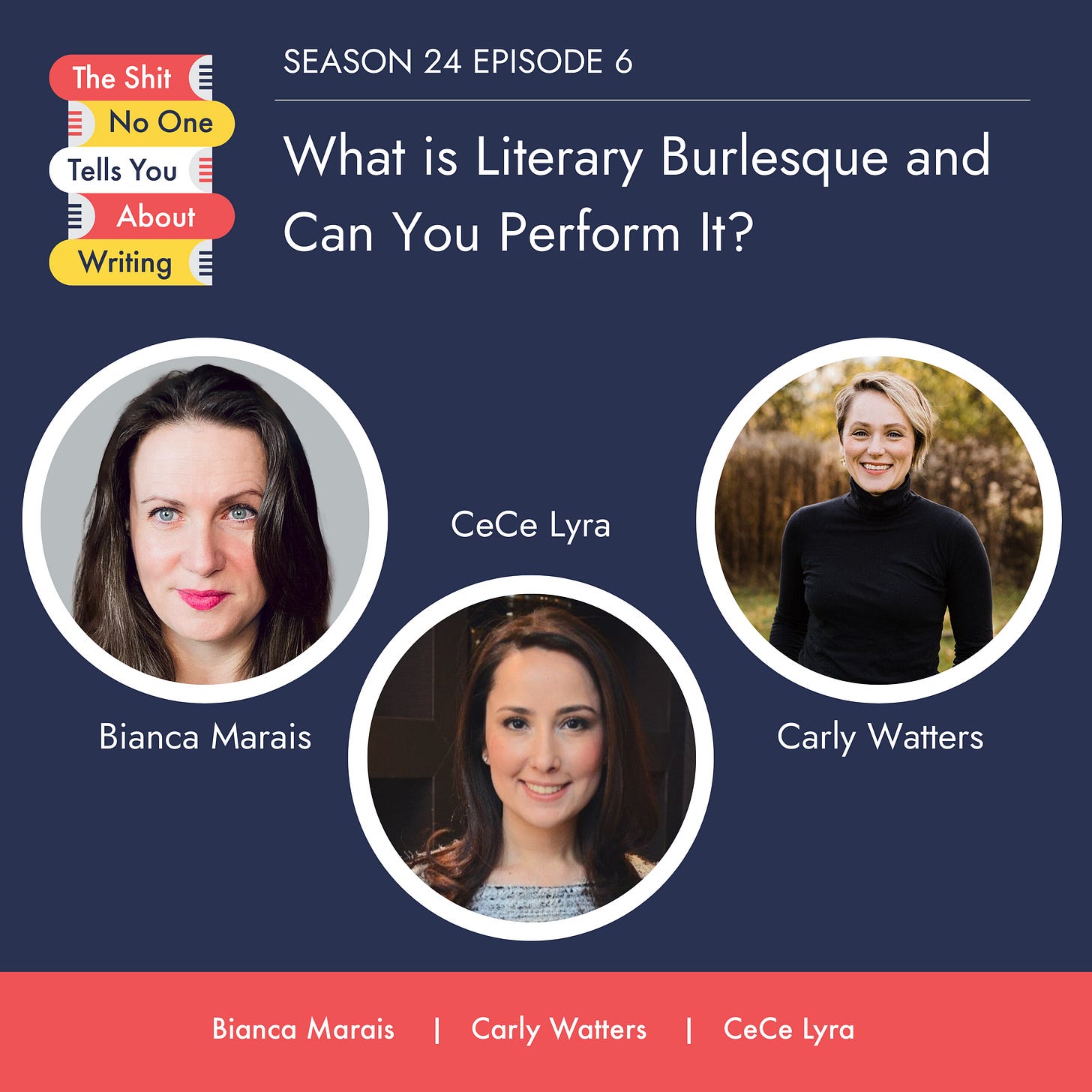
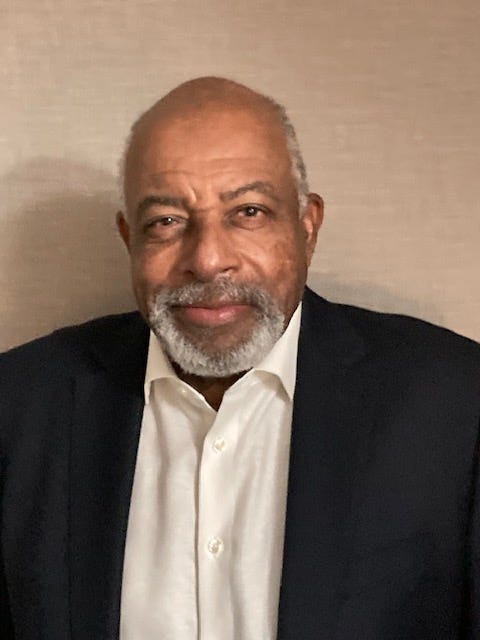
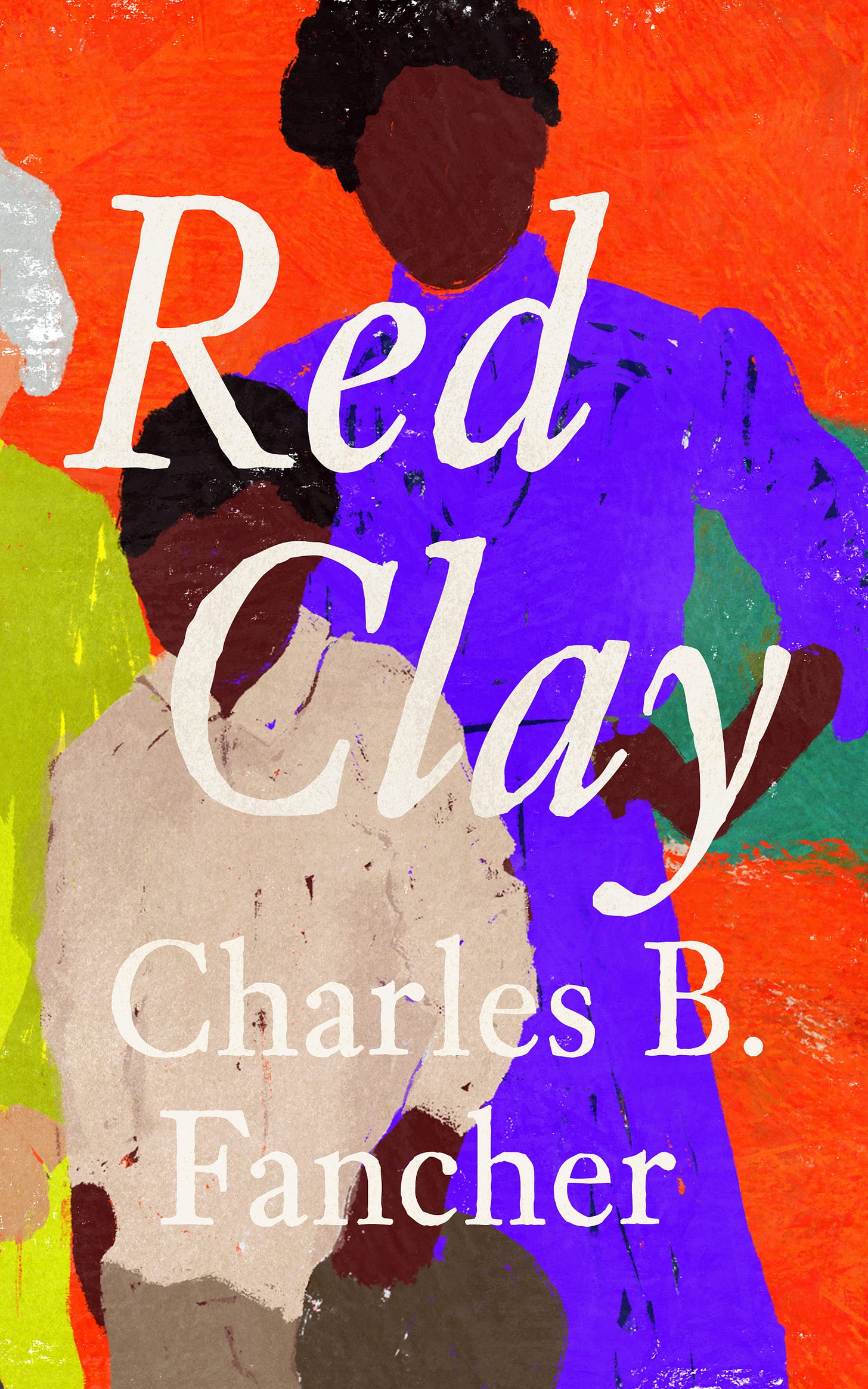
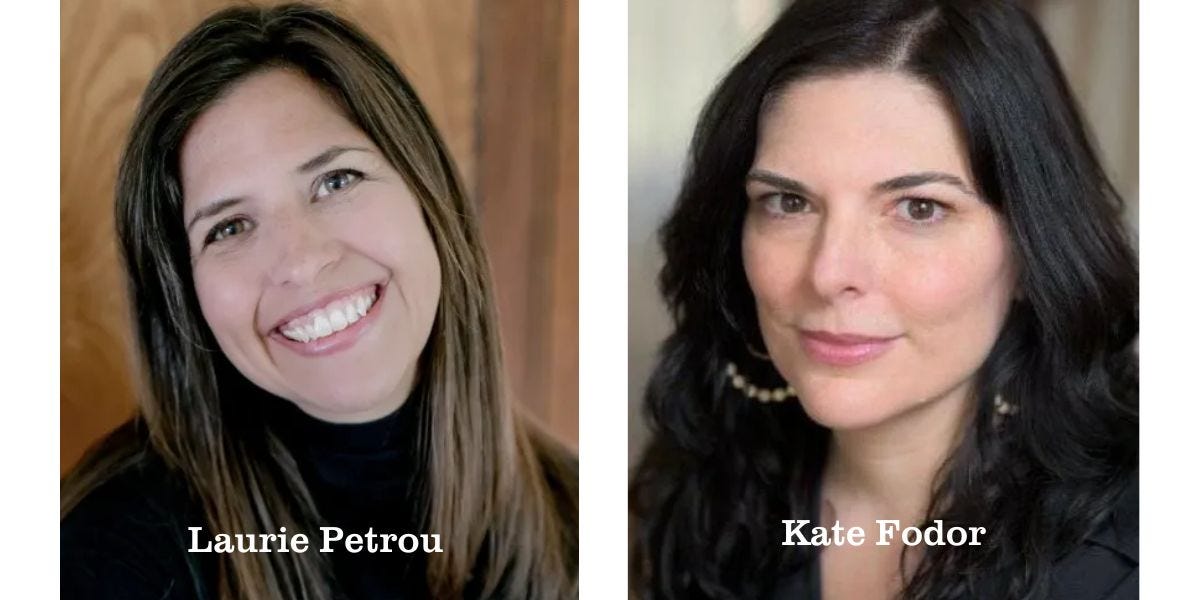
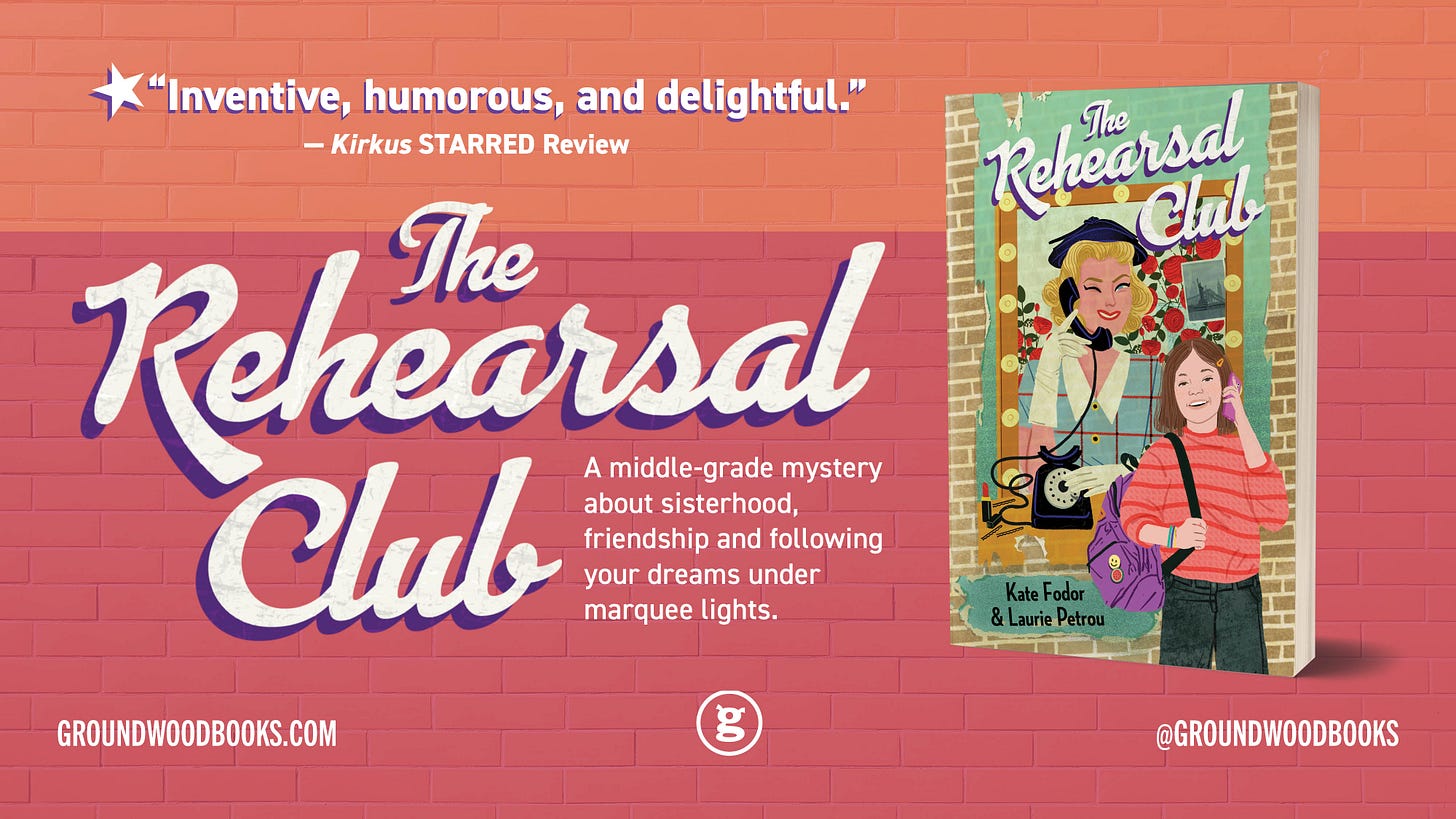

Much here to appreciate, especially for those among us who are in Act III. And nothing beats a beta read from fellow writers posing pesky questions about stakes, through lines, pacing - thanks for sharing.
Writer definition: A group of people in the human race who creates something and smiles at it. So Godly in nature.
When God created the Heavens and the earth in Genesis chapter of the Bible, do you think God didn't smile at His creation?